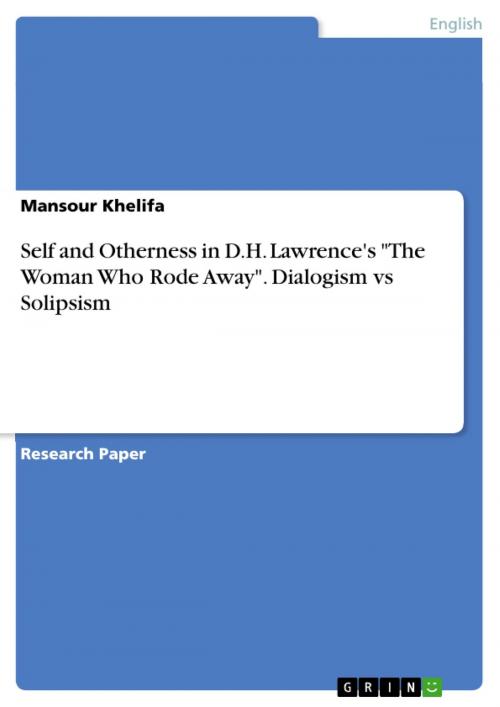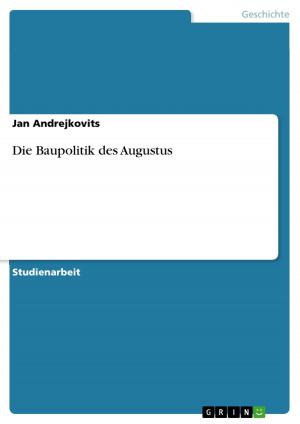Self and Otherness in D.H. Lawrence's 'The Woman Who Rode Away'. Dialogism vs Solipsism
Fiction & Literature, Literary Theory & Criticism, British| Author: | Mansour Khelifa | ISBN: | 9783668162242 |
| Publisher: | GRIN Verlag | Publication: | February 29, 2016 |
| Imprint: | GRIN Verlag | Language: | English |
| Author: | Mansour Khelifa |
| ISBN: | 9783668162242 |
| Publisher: | GRIN Verlag |
| Publication: | February 29, 2016 |
| Imprint: | GRIN Verlag |
| Language: | English |
Research Paper (postgraduate) from the year 2015 in the subject English Language and Literature Studies - Literature, , language: English, abstract: Departing from the belief that humanity has been perverted by idealism, Lawrence engages in a lifelong struggle in order to save modern society from decay and madness. Throughout his work, he tries to draw our attention to empirical experience as opposed to abstract theorising, and awaken our sensuous mode of being in distinct polarisation with our mental consciousness. He likes to point out the many marvels of the living world. For Lawrence, humanity's salvation depends on, among other things, the healthy, physical relationship between man and woman. In 'The Woman Who Rode Away' Lawrence dramatises the relation between two diametrically opposed cultures: the Western and the Amerindian. The story of the woman who escaped from her ranch at once highlights and subverts the preconceived ideas about the Red Indians' 'savage' (48) culture and cult. Yet, in filigree, the narrator of the story subtly arouses the reader's 'willing suspension of disbelief' and awe by conferring respectability on the white woman's self-sacrifice for the sake of the Red Indians' sun. In a masterly 'tour de force,' Lawrence uses this highly dramatised narrative to serve his own overarching assertion that Western civilisation, as a universal ideal, has no future. The White Man's Burden as an imperialist predicament has turned the world into a nightmarish place prone to global warfare and strife. The only escape from this deadly situation seems to lie in the dialectical interchange with other different cultures, different but not inferior, which might vitally contaminate and even rejuvenate decadent Western civilisation.
Research Paper (postgraduate) from the year 2015 in the subject English Language and Literature Studies - Literature, , language: English, abstract: Departing from the belief that humanity has been perverted by idealism, Lawrence engages in a lifelong struggle in order to save modern society from decay and madness. Throughout his work, he tries to draw our attention to empirical experience as opposed to abstract theorising, and awaken our sensuous mode of being in distinct polarisation with our mental consciousness. He likes to point out the many marvels of the living world. For Lawrence, humanity's salvation depends on, among other things, the healthy, physical relationship between man and woman. In 'The Woman Who Rode Away' Lawrence dramatises the relation between two diametrically opposed cultures: the Western and the Amerindian. The story of the woman who escaped from her ranch at once highlights and subverts the preconceived ideas about the Red Indians' 'savage' (48) culture and cult. Yet, in filigree, the narrator of the story subtly arouses the reader's 'willing suspension of disbelief' and awe by conferring respectability on the white woman's self-sacrifice for the sake of the Red Indians' sun. In a masterly 'tour de force,' Lawrence uses this highly dramatised narrative to serve his own overarching assertion that Western civilisation, as a universal ideal, has no future. The White Man's Burden as an imperialist predicament has turned the world into a nightmarish place prone to global warfare and strife. The only escape from this deadly situation seems to lie in the dialectical interchange with other different cultures, different but not inferior, which might vitally contaminate and even rejuvenate decadent Western civilisation.















